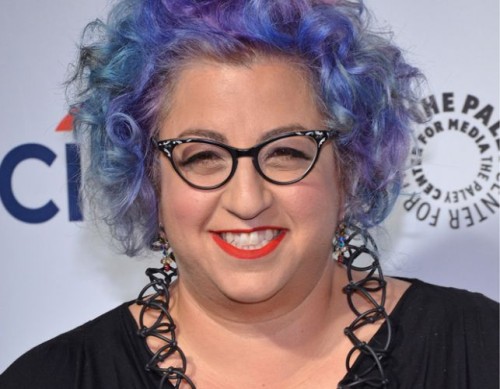Jenji Kohan and the Jewish Hyper-Sexualization of Western Culture

As detailed in The Culture of Critique, Freud and his followers regarded anti-Semitism was a universal pathology which had its roots in sexual repression. The theoretical basis for this can be found in Freud’s Three Essays on the Theory of Sexuality where he linked aggression to the frustration of human drives — especially the sex drive. Kevin MacDonald notes that: “Although Freud himself later developed the idea of a death instinct to explain aggression, a consistent theme of the Freudian critique of Western culture, as exemplified for example by Norman O. Brown, Herbert Marcuse, and Wilhelm Reich, has been that the liberation of sexual repressions would lead to lowered aggression and usher in an era of universal love.”[1]
According to this view, anti-Semitism, regarded as a form of aggression, results from the denial of sexuality, and the role of the Jewish mission of psychoanalysis was to end anti-Semitism by freeing humanity of its sexual repressions. Individuals preoccupied with sex were considered unlikely to concern themselves with the activities of Jews, much less to organize politically against them. People who spend most of their time in search of sexual stimulation are unlikely to organize pogroms or threaten the rich and powerful Jewish establishment. In his widely cited 2004 essay from the Jewish Quarterly Nathan Abrams observed that:
Jews in America have been sexual revolutionaries. A large amount of the material on sexual liberation was written by Jews. Those at the forefront of the movement which forced America to adopt a more liberal view of sex were Jewish. Jews were also at the vanguard of the sexual revolution of the 1960s. Wilhelm Reich, Herbert Marcuse and Paul Goodman replaced Marx, Trotsky and Lenin as required revolutionary reading. Reich’s central preoccupations were work, love and sex, while Marcuse prophesied that a socialist utopia would free individuals to achieve sexual satisfaction. Goodman wrote .. of the “beautiful cultural consequences” that would follow from legalizing pornography: it would “ennoble all our art” and “humanize sexuality.”
The hyper-sexualization of Western culture (the most conspicuous result of the Jewish takeover and virtual monopolization of the Western media and entertainment industries) can, therefore, be viewed as the practical ethno-political application of psychoanalytic theory to a traditional Western culture regarded as inherently authoritarian, fascistic and anti-Semitic due to its “repressive” sexual morality. MacDonald points out that “psychoanalysis has been a veritable treasure trove of ideas for those intent on developing radical critiques of Western culture” with these ideas influencing thought in a wide range of areas, “including sociology, child rearing, criminology, anthropology, literary criticism, art, literature, and the popular media.”[2] ...



